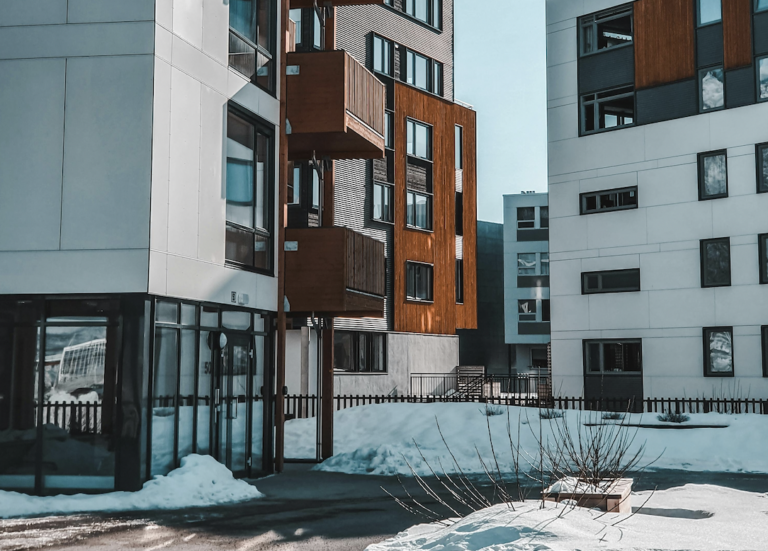Philadelphia apartment building owners are responsible for taking action to prevent injuries on their property. When accidents happen, Philly Slip and Fall Guys represent clients seeking compensation. Here are five injury causes a slip and fall lawyer can hold an apartment building owner responsible for:
1. Ice and Snow
Winter hazards that can cause falls include icy walkways, snow drifts on stairs, and unplowed parking lots. Pennsylvania landlords have a legal responsibility or duty of care to their tenants and guests, which requires them to provide reasonable protection from various hazards, including ice and snow. This duty of care applies to anyone invited to the property, also known as invitees or licensees. Invitations may be formal, like a scheduled meeting with a maintenance contractor. They can also be implied, like tenants freely entering and exiting the complex’s main office.
Each apartment complex will have unique preventative measures, depending on the property type and local climate. The amount of hazardous weather and resident traffic guides owners on how quickly they need to clear ice and snow from their property. They should take into account the storm’s severity, length, and details of the property, including its size and usage. Philly Slip and Fall Guys has experience navigating negligence and responsibility laws during slip and fall trials involving improper snow and ice removal.
2. Floor Hazards
Poor maintenance can create walking hazards like broken steps, damaged stairwells, and leaks or debris in common areas. Aging vinyl and tile floor coverings may develop into uneven walking surfaces. Carpeting wears down over time, which may make it slippery. Pennsylvania deems failure to provide adequate warning of these dangers a hazard. Owners are required to use signage like orange cones or tape to inform residents of dangerous conditions.
State laws that regulate property owners’ responsibilities are called premises liability laws. In Pennsylvania, premises liability uses a modified comparative rule to determine negligence. This allows courts to assign partial blame for accidents, expressed as a percentage. This means slip and fall victims who are partially at fault may still receive compensation, with damages awarded modified by the percentage of fault.
3. Exercise Area Maintenance
Apartments with gyms and spas are required to keep those areas free of reasonable tripping dangers. High-traffic paths can be prone to floor damage, and locker areas like showers and bathrooms often have wet surfaces. Broken exercise equipment, like treadmills and weight machines, may snap, tilt, or seize during use, causing accidents. Unsecured power cords and wiring also present a tripping hazard in exercise areas. Property owners should take precautions to eliminate risks for gym visitors.
4. Elevator Malfunctions
In high-rise apartments, poorly maintained elevators can create fall hazards. Elevator flooring is vulnerable to wear and spills, and doors that close too quickly encourage hurried movements that may lead to a slip and fall accident. Failing mechanisms can misalign the elevator with the floor, making a temporary, unexpected step of several inches. Property managers should inspect this equipment regularly to prevent slips and trips.
5. Sidewalk Obstructions
Slip and fall accidents often occur on sidewalks that are not adequately maintained. Broken concrete or stonework, accumulated trash, and wet weather conditions make using sidewalks more dangerous. Property owners are responsible for keeping private sidewalks clear from debris and damage to make them safe for pedestrians.
Hire an Experienced Slip and Fall Lawyer
At Philly Slip and Fall Guys, we advocate for clients to help them receive fair damages for their injuries. This compensation covers medical costs, physical therapy expenses, loss of income, and pain and suffering. We may also seek punitive damages, which help protect you and other residents from future injury. Call us today for a free consultation with an experienced slip and fall lawyer.

